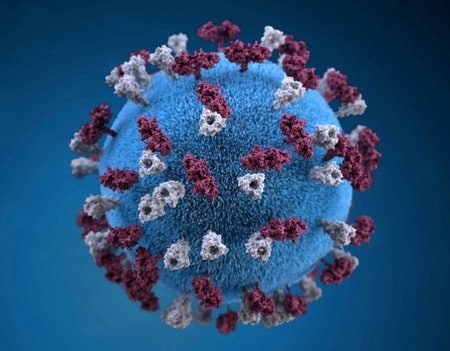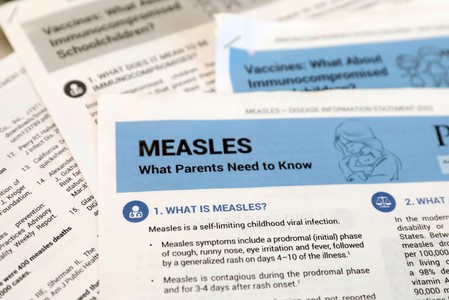By Julie Steenhuysen
CHICAGO (Reuters) – U.S. doctors are tapping into their electronic medical records to identify unvaccinated patients and potentially infected individuals to help contain the worst U.S. measles outbreak in 25 years.
New York’s NYU Langone Health network of hospitals and medical offices treats patients from both Rockland County and Brooklyn, two epicenters of the outbreak. It has built alerts into its electronic medical records system to notify doctors and nurses that a patient lives in an outbreak area, based on their Zip code.
“It identifies incoming patients who may have been exposed to measles and need to be assessed,” said Dr. Michael Phillips, chief epidemiologist at NYU Langone Health.
Alerts in a patient’s medical record also prompt conversations with their visitors – who may also have been exposed to the virus – about their own health, prior exposure to measles and vaccination history.
Mount Sinai Health System in New York rolled out a similar program last week, said Dr. Bruce Darrow, its chief medical information officer.
Darrow said it was important because although a patient who comes from a measles-affected Zip code may have passed the screening, family members who visit may have been exposed.
He said the alert system raises awareness for doctors and nurses “to be on lookout not just for our patients, but anybody who comes into the building.”
U.S. officials have reported more than 700 confirmed cases of measles, the highest level since the virus was deemed eliminated in 2000. The measles virus is highly contagious and can cause blindness, deafness, brain damage or death.
At NYU Langone, the alerts were developed using software from Madison, Wisconsin-based Epic Systems Corp. Epic, whose medical records software is used by thousands of U.S. hospitals and clinics, said other customers began requesting their help to address the outbreak.
In response, Epic released a how-to guide last month that incorporated many of the best ideas from its customers fighting the outbreak. The guide walks health systems through ways to use medical records to identify and reach out to patients who are unvaccinated and helps inform doctors on how to screen, track and treat measles patients.
“For example, we can find all those patients missing the MMR vaccine and send out a message to patients or providers,” said Jordan Tucker, a member of the Epic implementation team, who is helping oversee the project.
So far, Epic clients in New York, Illinois, Texas and California are using the system to fight the outbreak.
Illinois has confirmed seven measles cases this year. In response to reports of a potential case in the Chicago area, two hospitals in the suburbs last month sent hundreds of letters to parents urging them to ensure their kids get their measles shots.
“We wanted to do everything we could before it got to us,” said Dr. Michael Caplan, co-medical director of a pediatric partnership between Advocate Children’s Hospital and North University HealthSystem.
Northern California’s Sutter Health, which serves 3 million patients, last month introduced a screening questionnaire about potential measles risk for every patient who tries to book their appointment online.
Dr. Jeffrey Silvers, Sutter Health’s medical director of infectious diseases, said people with measles often seek treatment for symptoms such as cough, runny nose or fever before they develop the tell-tale rash. The screening program aims to identify early whether they represent a measles case.
“If a person has a fever plus one of those symptoms, or a rash, they have to answer the next question, which is, ‘Have you been outside of the United States in the last three weeks or been exposed to anybody with measles?'” Silvers said.
Those who answer yes must call to schedule their appointment so that staff can take precautions to protect themselves and other patients.
California so far has had 40 measles cases, most of them in the southern part of the state. Sutter plans to use Epic’s software to develop a program to increase measles vaccination coverage, Silver said.
According to the World Health Organization, 95 percent of a population needs to be vaccinated to provide “herd immunity,” a form of indirect protection that prevents infection in people too young or sick to be vaccinated. CDC officials have said rising rates of vaccine skepticism are creating undervaccinated populations, weakening herd immunity.
If herd immunity is not sufficient and exposures continue, the outbreak could take off, said Caplan, the Illinois pediatrician. “Everybody is a little concerned about that.”
(This story in paragraph 15, changes number of patients Sutter Health sees to 3 million from 1.7 million).
(Reporting by Julie Steenhuysen; Editing by Daniel Wallis)



